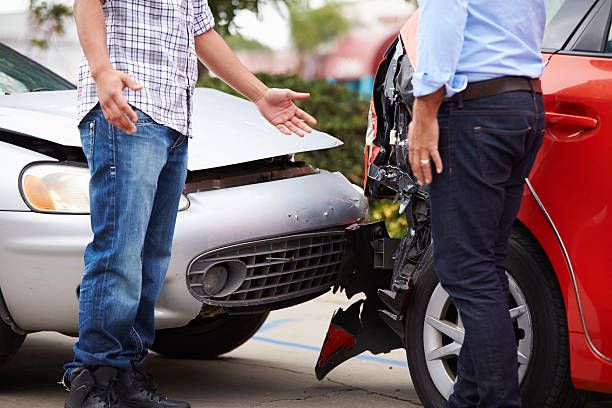If you’ve spent time driving in Florida, you’ve probably heard the term “fender bender.” It’s a common phrase that refers to minor car accidents. In this post, I’ll explain what a fender bender is, its causes, and how it relates to the question of whether you can sue for a fender bender accident in Florida.
Understanding Fender Benders
A fender bender is typically a minor car accident where vehicles collide at low speeds, often causing little to no damage beyond superficial dents or scratches to the bumpers or fenders. Most of the time, people involved in these accidents walk away without serious injuries, but that doesn’t mean you shouldn’t take them seriously.
Key Features of a Fender Bender
- Low Speed: These accidents often occur in places like parking lots or during slow-moving traffic, usually at speeds under 10 mph.
- Minor Damage: The damage is generally cosmetic—think small dents or scrapes, not major repairs.
- Limited Injuries: While injuries can happen, they are often minor, such as soreness or minor whiplash.
Common Causes of Fender Benders in Florida
Knowing what often leads to car accidents can help you stay safer on the road. Here are some common causes I’ve noticed:
- Distracted Driving: Many fender benders happen because drivers are texting, talking on the phone, or not paying attention to the road.
- Tailgating: Following too closely behind another car can lead to collisions, especially if the car in front suddenly stops.
- Changing Lanes: Failing to signal or check blind spots when changing lanes can result in a crash with another vehicle.
- Backing Up: Fender benders often occur in parking lots when drivers back out without looking.
- Bad Weather: Florida’s rain can create slippery roads, making it easier to lose control of your vehicle and bump into another car.
What to Do If You Have a Fender Bender
If you find yourself in a car accident, here’s a simple guide to follow:
- Stay Calm: Take a deep breath and assess the situation. If anyone is injured, call 911 right away.
- Move to Safety: If it’s safe, move your car to the side of the road to avoid blocking traffic.
- Exchange Information: Share your contact and insurance information with the other driver(s). Be sure to note their names, phone numbers, and insurance details.
- Document the Scene: Take pictures of the accident scene and any damage. This will help if you need to file a claim.
- Notify Your Insurance: Contact your insurance company to report the accident and provide them with the details you gathered.
- Seek Medical Attention: Even if you feel fine, it’s wise to see a doctor. Some injuries, like whiplash, may not show up right away.
Can You Sue for a Fender Bender Accident in Florida?
If you’re involved in a minor car accident in Florida, you might wonder if you can take legal action. Florida follows no-fault laws, which means your own insurance usually covers your medical bills and damages, no matter who caused the accident. However, if your injuries are serious like broken bones or long-lasting pain, you may be able to sue the other driver. To do this, you need to show that your injuries are significant and that the other driver was at fault. This may involve collecting evidence, such as photos from the scene or statements from witnesses. A personal injury lawyer can be invaluable in this process, helping you understand your rights and guiding you in gathering evidence to seek the compensation you deserve.
Conclusion
Fender benders may seem like minor incidents, but they can lead to bigger issues, especially when it comes to legal matters. By understanding what a fender bender is, what causes them, and how to respond, you’ll be better prepared if you ever find yourself in this situation. Always remember to stay calm and gather all necessary information. And if you think you have a case to sue for a fender bender accident, don’t hesitate to seek legal advice. It’s important to know your rights and ensure you’re protected on the road.
